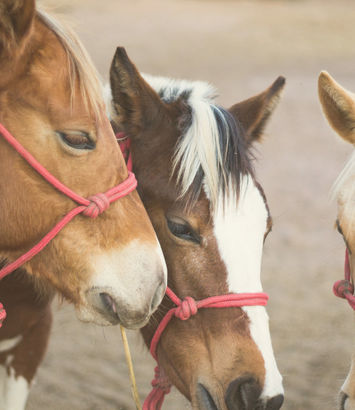
GILVARRY ACADEMY
MODULE 3. NEUROPHYSIOLOGY
MODULE 3. NEUROPHYSIOLOGY
OVERVIEW
This module aims to enhance your knowledge and skills in optimizing your horse's welfare, specifically focusing on minimizing and eliminating pain experiences.
Although often viewed negatively, pain is a natural aspect of life that horse owners may encounter.
This session aims to delve deeper into pain, covering its definition, various types, neurophysiology and pathways, altered pain states, and methods for detecting pain in horses.
In addition to pain, stress is another factor that horses and their owners encounter. Our ability to manage stressors is crucial in navigating life's challenges.
This module will also explore stress-related concepts such as defining stress, understanding homeostasis, different types of stress, the stress axis, and techniques for identifying stress in horses.
UNDERSTANDING PAIN IN HORSES
Pain is an inherent part of life, and as horse owners, we will likely encounter situations where our horses exhibit signs of discomfort or pain.
This section will delve into the physiology of pain, covering:
Physiology of Pain
Pain is a complex sensory experience that can manifest as an emotional and physical reaction.
We will discuss how it is a protective mechanism that alerts us to potential injury or illness.
Different Types of Pain
We will categorize pain into two main types: acute and chronic.
Acute pain is typically sudden and short-lived, often resulting from injury. Chronic pain, on the other hand, can persist over a longer period and often indicates underlying health issues.
Pain Pathways
Understanding the neurophysiology of pain is essential for horse owners. We will explore how pain signals are transmitted through the nervous system, including the role of nociceptors, the spinal cord, and the brain.
Altered Pain States
Horses may exhibit altered pain states, which can complicate diagnosis and treatment. We'll cover how chronic pain can affect behavior, movement, and overall quality of life.
UNDERSTANDING STRESS IN HORSES
Stress and its impact on equine welfare is another crucial topic. This section will provide deeper insights into how stress affects horses and their behavior.
Different Types of Stress
We'll categorize stress into acute and chronic stressors, emphasizing how chronic stress can lead to long-term health issues and how it can be triggered by environmental changes, management practices, and even social dynamics within a herd.
Homeostasis
The concept of homeostasis refers to the body's ability to maintain stable internal conditions despite external changes. We will explore how stress disrupts homeostasis and the potential consequences on a horse's physical and mental health.
Stress Axis
Understanding the stress axis (HPA axis) is vital for horse owners. We'll break down how the hypothalamus, pituitary gland, and adrenal glands work together to respond to stress and the physiological changes that follow.
Gut-Brain Axis
The connection between gut health and stress responses is gaining attention in equine medicine. We'll discuss how gut health can influence a horse's stress levels and overall well-being.

READY TO GET STARTED?
By the end of this module, you will have a comprehensive understanding of pain and stress in horses, how to assess and respond to these challenges, and the importance of optimizing your horse's welfare.
This knowledge will empower you to implement effective strategies to enhance your horse's quality of life. Let's dive into the lessons and begin this important journey!





